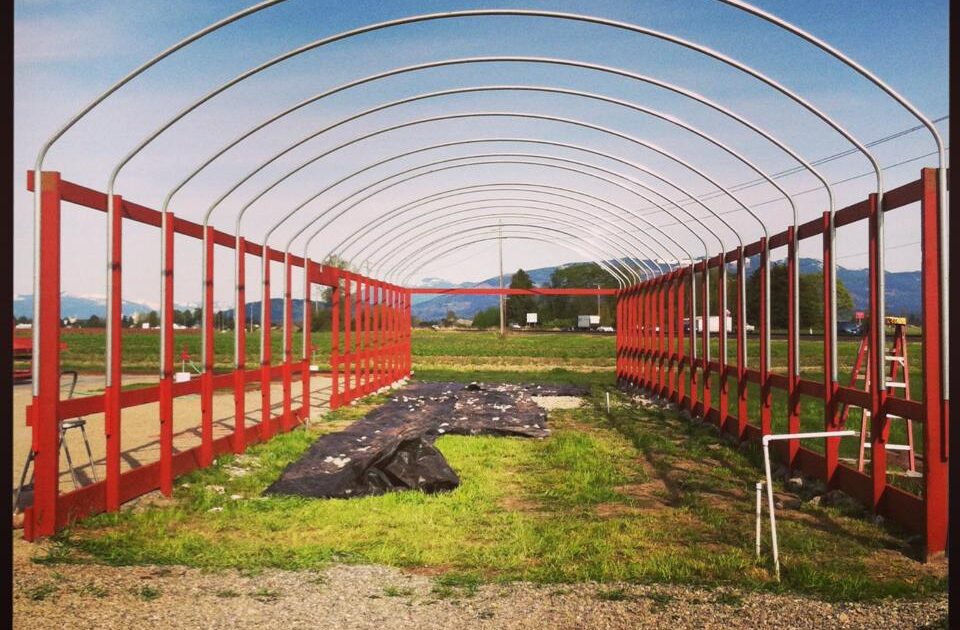Viva Farms Helps Budding Farmers Grow

Viva Farms helps farmers of all ages and backgrounds thrive. Viva Farms, which was founded in 2009, is farmed by a few handfuls of farmers who are dedicated to learning how to farm sustainably, while also learning about self-reliance.
Organic Authority recently got to interview Michael Frazier, the executive director of Viva Farms, about how the organization got its start and how it helps new farmers.
Organic Authority: Tell us a little about Viva Farms. How was it founded?
Michael Frazier: Viva Farms is non-profit land-based certified organic farm incubator and training center located in Skagit County, Washington. We are working to create a just and healthy food system that engages and empowers our community: producer to consumer. By training limited resource and beginning farmers in holistic farm planning and environmental stewardship, Viva Farms cultivates self-reliance among small-scale and family-owned farms, and invests in the people and land that are the future of food and farming.
We deliver what we consider are the six essentials for beginning farmers: (1) Education (2) Land (3) Equipment (4) Infrastructure (5) Markets (6) Capitol
OA: Tell us about the farmers you are working with now.
MF: We currently have 14 distinct farm businesses at Viva. Seven are Latino owned, one is Korean, and of the 14, eight are either woman owned or co-owned. Our farmers range in age from early twenties to mid-60s, with varying degrees of experience. Many are farm workers with extensive field experience, including the knowledge of the dedication and hard work required to be successful. We also have some young farmers with a lot of classroom knowledge and an understanding and ability to perform the record keeping and regulation requirements of farming. Several of our younger farmers have transitioned from Sustainable Agriculture Education program (SAgE) at Skagit Valley College for which we are the practicum farm. In addition, we have farmers who are transitioning from other careers, and are passionate about sustainable agriculture and community health, and want to contribute by farming.
OA: What types of sustainable farming practices do you promote at Viva Farms?
MF: Viva is a certified organic farm, which drives many sustainable practices including fertilizer use, and pest and weed management. We also train, encourage, and require, depending on the practice and farm plan, farmers to invest in soil health by using cover crops and other amendments and efficient irrigation practices. As an incubator farm, there is an ongoing educational process, and some flexibility to allow innovation and make their own decisions about practices.
OA: What other types of skills do you teach the farmers at the incubator level?
MF: We offer comprehensive training in sustainable agriculture and business planning. We have a core competency-training program and work with our farmers to identify additional needs throughout the year. When additional training is required, we either design and deliver or work with knowledgeable partners to bring this training to our farmers and often our regional farming network.
Needs vary from farmer to farmer with some requiring assistance with business skills, government regulations, record keeping, and access to capital, for example; and others needing to learn how to safely operate farm machinery, when to till the fields, space crops properly, or identify pests and prevent pests. Almost everyone needs help with weed and pest management as this has proven to be very challenging on an organic farm. Viva also provides training on post-harvest practices including food safety, direct and wholesale marketing, acquiring land and capitol and more. While we offer most of our training in a group setting we also intentionally work one on one with our farmers through regularly scheduled meetings where we identify specific needs of individual farmers.
OA: What start-up costs does Viva cover?
MF: Viva Farms lowers the prohibitive startup costs for beginning farmers by offering affordable access to six essentials.
We do have two capitol access programs:
Farmer Reserve Fund with North Coast Credit Union where we maintain collateral for farmers to borrow against for operational or capital expenditures. This program has benefited several of our farmers who otherwise would not have had access to capital buy tractors, implements, cold storage, seeds or starts, lease additional land and other items as they prepare to launch off Viva and become independent.
Seeds of Success Program with Beneficial State Bank where farmers develop a habit of planning and saving for expansion with a matching individual development account
We also offer pretty much all of our training free for participants of the program where regional farming network partners may incur a nominal fee.
OA: What are the biggest challenges the organization faces?
MF: Viva has committed to the challenge of not only farming, but also being an education center for beginning and existing farmers. Neither is inherently easy or profitable. In addition, we have intentionally taken on the goal of food and social justice by developing a bilingual program that respects and honors the potential in all of us to positively contribute to our community while nourishing our community to include limited resource populations. Bridging language, cultural and socioeconomic differences is also not an easy or profitable endeavor, but we see the ultimate value in pressing forward. Beyond those baseline challenges, we face many of the same issues education or farming businesses face.
Related on Organic Authority
Big Organic Farming Operations Not So Green, Warns Study
Organic Farming 2.0: How No-Till Farming Might Save Modern Agriculture
Organic Farming Methods Keep Honey Bees Alive, Report Finds
Viva Farms photo from Viva’s Facebook page

